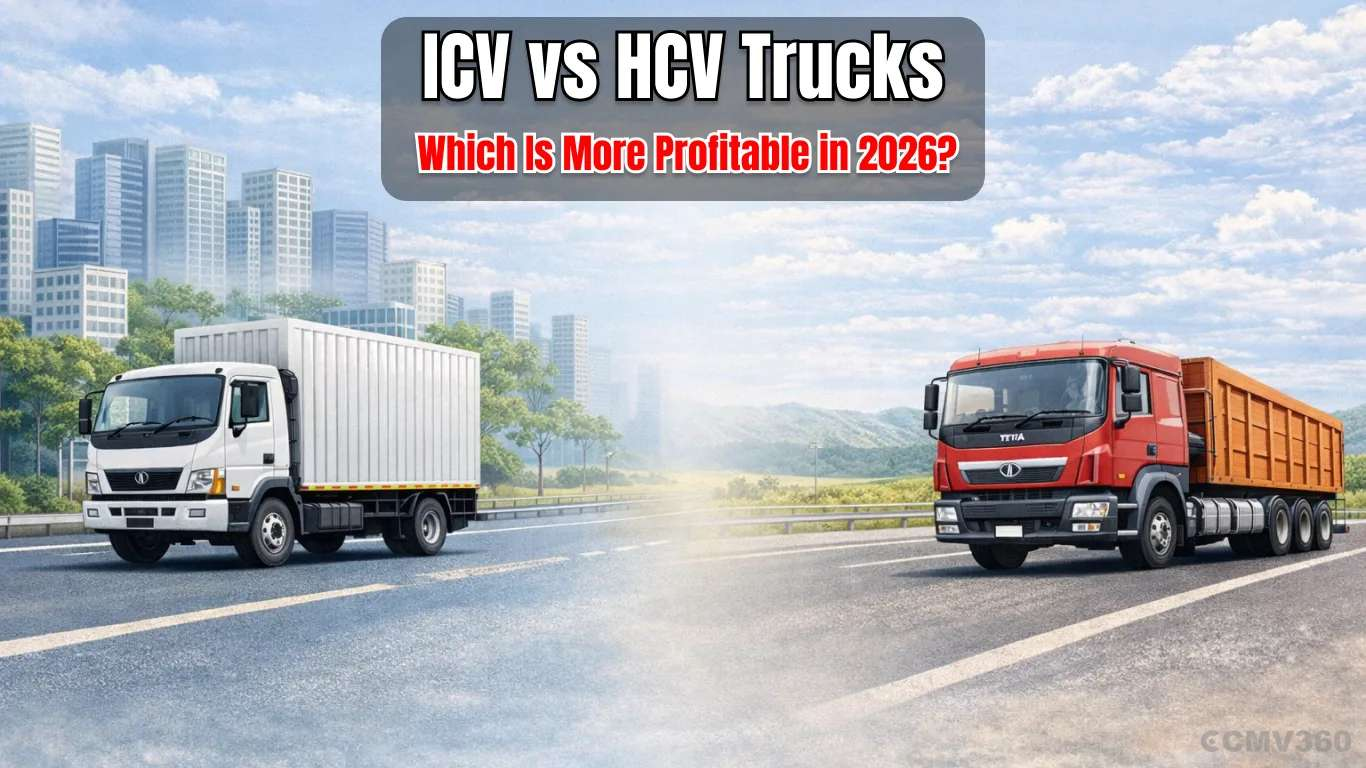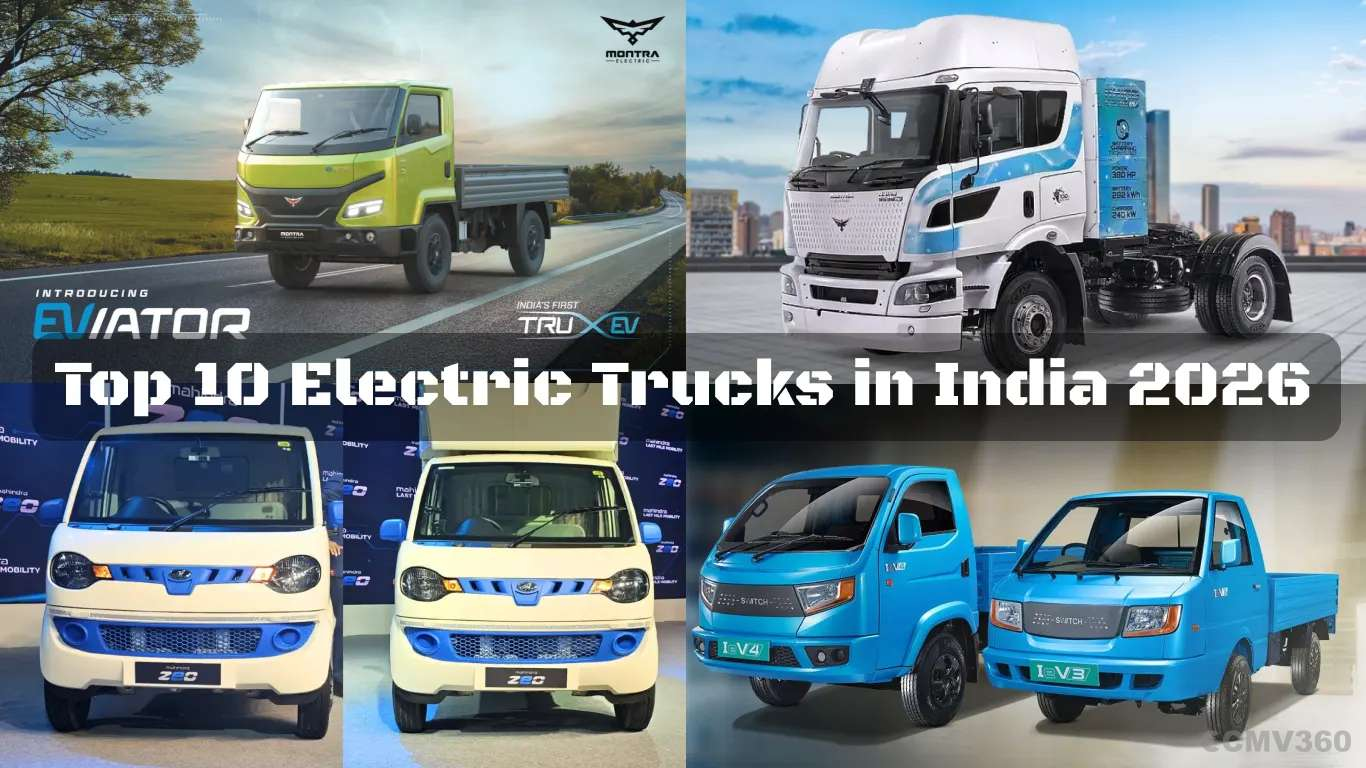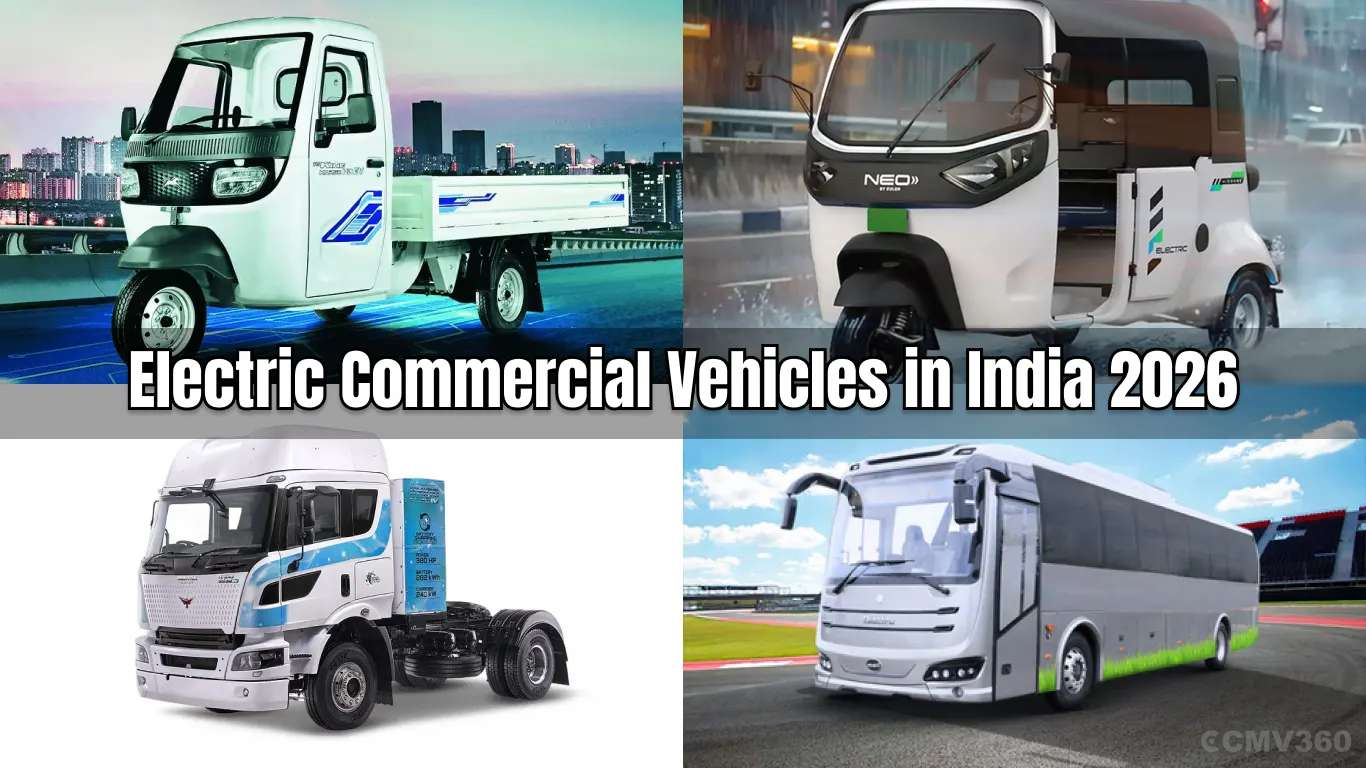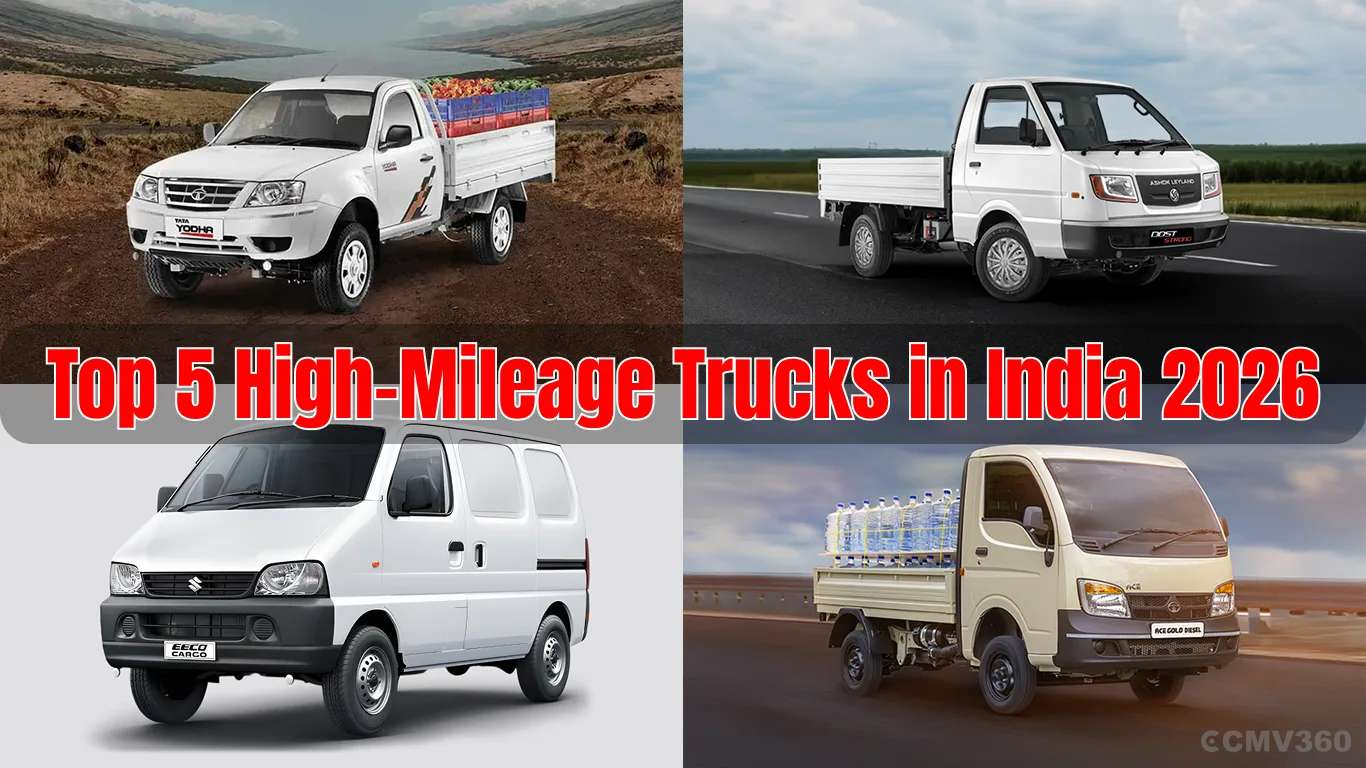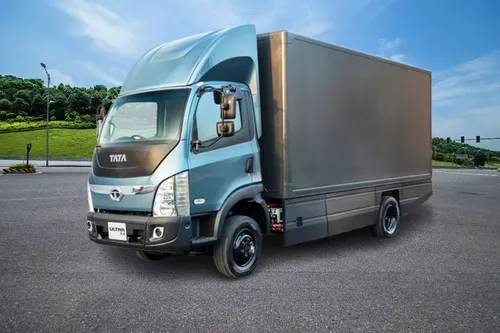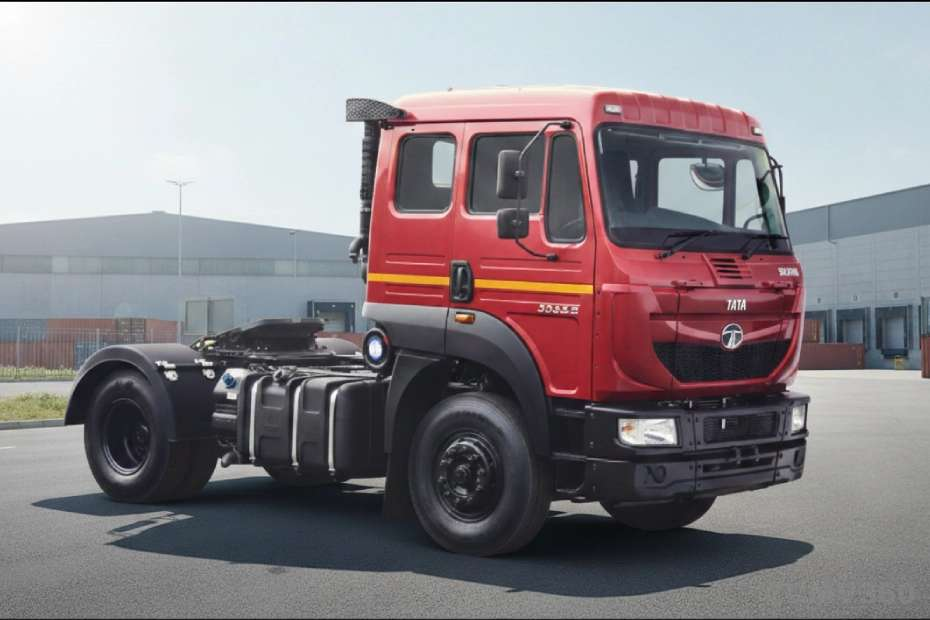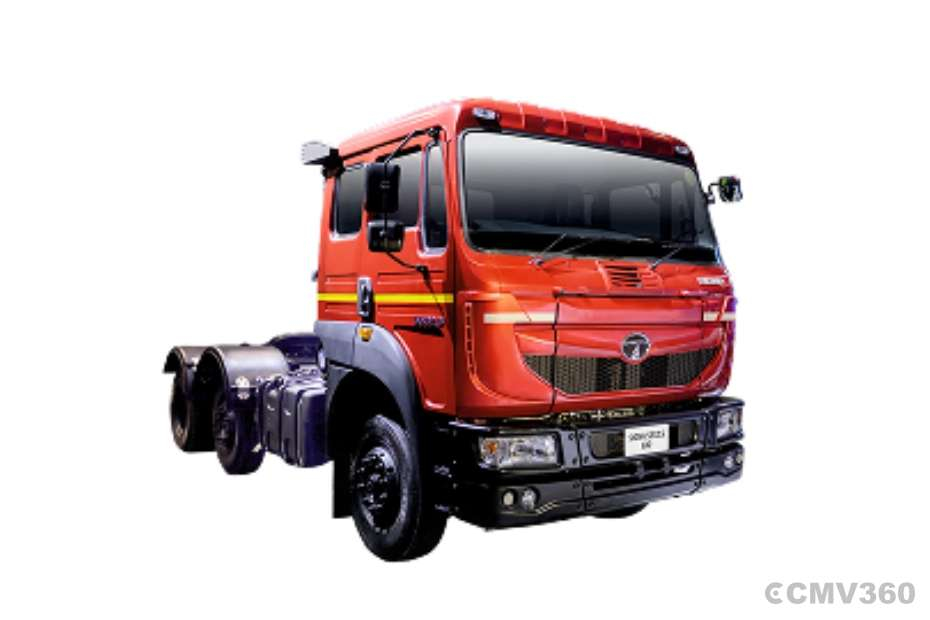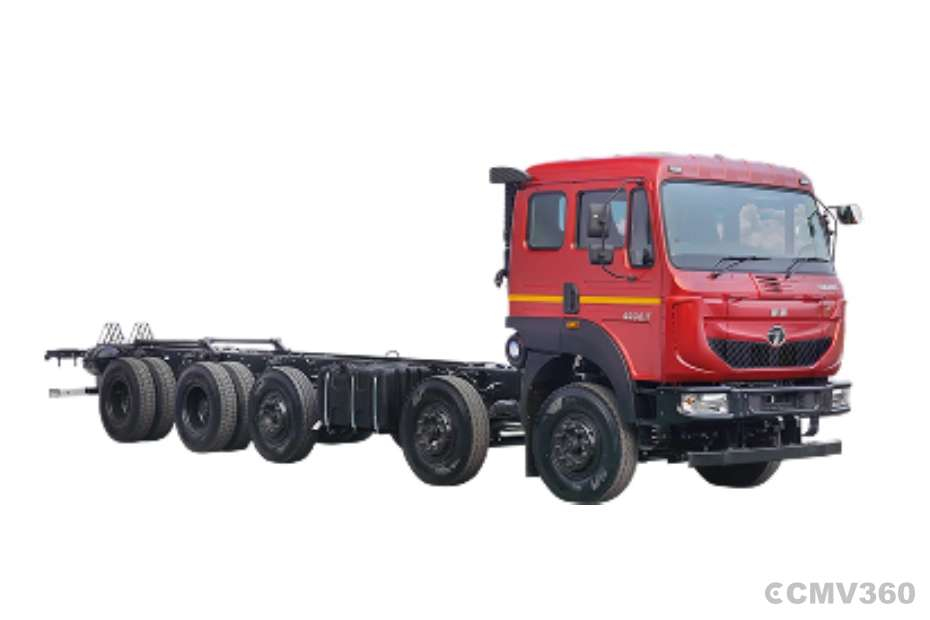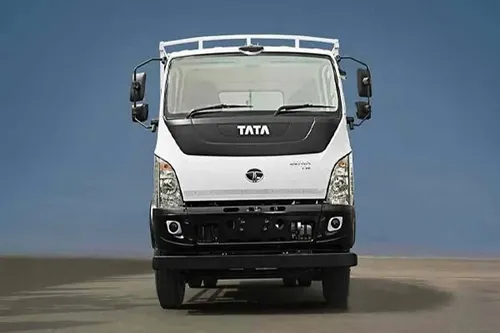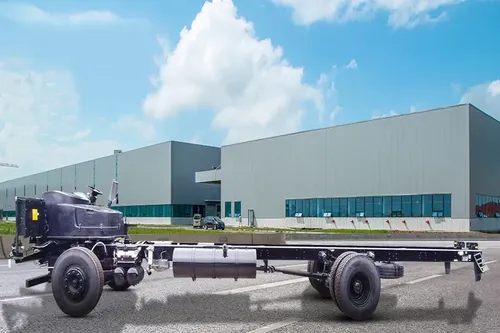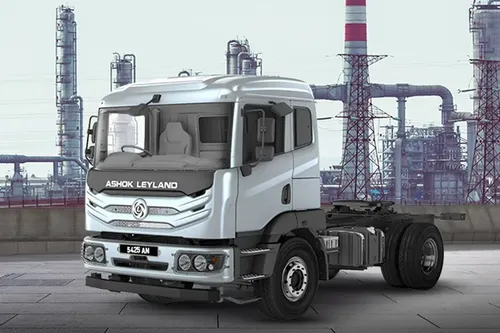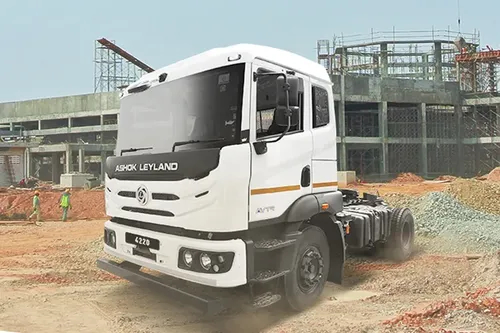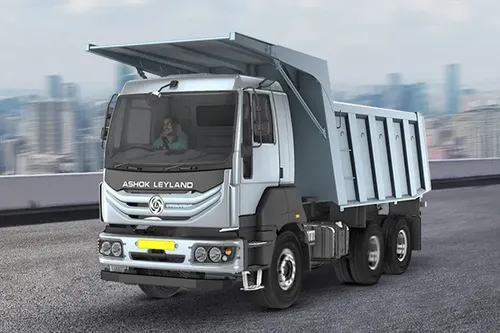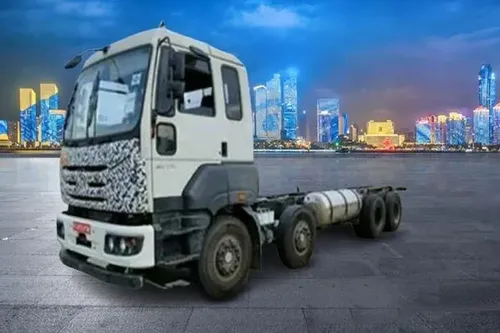Ad
Ad
Commercial Vehicle RTO Rules
Commercial vehicles are defined as motor vehicles used for the carriage of goods or passengers for hire or reward. It includes a wide range of vehicles such as buses, taxis, trucks, and auto rickshaws. In this article, we have explained some key commercial vehicle RTO rules in India.

The Ministry of Road Transport and Highways has formulated Central Motor Vehicles Rules, 1989, rules and regulations for the registration and operation of commercial vehicles in India. The commercial vehicle RTO rules are applied for all commercial vehicles throughout the country which includes goods carriers, trailers, and passenger vehicles.
The commercial vehicle RTO rules are a set of regulations governing the registration and maintenance of commercial vehicles in India, which are designed to ensure the environment and all road users are safe.
Commercial vehicles are defined as motor vehicles used for the carriage of goods or passengers for hire or reward. It includes a wide range of vehicles such as buses, taxis, trucks, and auto rickshaws.
In this article, we have explained some key commercial vehicle RTO rules in India.
Here are some of the key provisions of the rules:
Registration of commercial vehicles
Every commercial vehicle needs to be registered with the Regional Transport Office (RTO) in their jurisdiction region. The registration certificate (RC) has been valid for 15 years from the registration date.
Here are the steps involved in the registration process:
Application
The commercial vehicle must submit a registration application to the RTO office of their region. The vehicle user needs to submit Form 20 with the necessary documents including address proof, identity proof and insurance proof.
Inspection
Thereafter the RTO office will inspect the application and ensure that the application meets the safety & emission standards mentioned in the Central Motor Vehicles Rules, 1989.
Payment of Fees
Then the owner needs to make the registration fees, road taxes and other charges. The fees are different based on vehicle type and seating capacity.
Issuance of Registration Certificate
The RTO office will issue a registration certificate (RC) to the owner, containing name, address, vehicle model, engine number, chassis number and registration number.
Display of Registration Number
The owner needs to show the registration number on the vehicle as per the guidelines mentioned under the Central Motor Vehicles Rules, 1989.
Permits for commercial vehicles
All commercial vehicle owners need to get a permit from the RTO office. There are various permits available in India like national permits, state permits and inter-state permits.
Also Read: Commercial Vehicle loans: Benefits, types, process, eligibility and other details
Here are some details about each type of permit:
National Permits
National permits are issued to goods vehicles enabling them to travel outside their home state. Rules 86 and 87 of the Central Motor Vehicles Rules, 1989, give national permits for a minimum of four continuous states including home states. The maximum age of a particular vehicle should not exceed 12 years and multi-axle vehicles shouldn’t exceed 15 years.
State Permits
State permits goods vehicles to operate within a particular state. The permit gives a particular vehicle for carrying a particular load to be plied in that particular area only.
Inter-State Permits
Interstate permits are issued to those vehicles operating in two or more states. The inter-state permits are valid for six months or one year.
Fitness Certificate of commercial vehicles
All commercial vehicles must obtain a fitness certificate from the RTO every year to ensure safety standards.
Here are some details about the fitness certificate:
Application
The commercial vehicle owner must apply for a fitness certificate to your regional RTO office. The application must submit Form 38 with necessary documents, including address proof, identity proof, and insurance policy.
Inspection
After receiving the application, the RTO office will inspect the vehicle ensuring that the vehicle meets the safety and emission standards. The inspection will verify the vehicle identification number (VIN) that matches the details in the application.
Payment of Fees
The owners must submit the prescribed fees to obtain a fitness certificate which is based on vehicle type and seating capacity.
Validity
The fitness certificate is valid for one year from the issued date, as the owner needs to obtain a new fitness certificate every year.
Insurance of commercial vehicles
Commercial vehicles need valid insurance coverage as per the Motor Vehicles Act, of 1988. The insurance policy must cover the third-party liability as well as damage to the vehicle.
Here are some details about the insurance process:
Certificate of Insurance
The insurance company must submit the Insurance certificate to the insured as per the rules. The certificate must contain details about the vehicle, policyholder and insurance policy.
Third-Party Liability Coverage
According to the Central Motor Vehicles Rules, 1989, the insurance policy must cover third-party liability. This means in case the insured vehicle causes any damage the insurance company will pay for the damages.
Damage to Vehicle Coverage
The insurance policy must cover damage to the insured vehicle, the coverage is optional but recommended.
Transfer of Insurance
In case of transfer of motor vehicles covered by a valid insurance certificate which is then transferred to another person with insurance policy relating thereto. In such cases, the insurance policy will automatically stand transferred to the other person from the date of transfer of ownership of the vehicle.
In this case, the new owner should inform the authorised insurer who has insured the vehicle about the vehicle registration details, vehicle transfer date, last owner details and number and the insurance policy date of the authorised insurer that makes necessary changes in his record.
Number of Plates of commercial vehicles
All commercial vehicles need to display the number plates according to the RTO guidelines. The number plates should be in black letters on a white background for light vehicles and yellow letters on a black background for commercial vehicles. According to the Central Motor Vehicles Rules, 1989, the number plate size is specified for each type of vehicle.
The Central Motor Vehicles Rules, 1989, must specify the guidelines displaying the number plates on commercial vehicles in India. Here are the details about the number plate rules:
Colour Scheme
According to the Vehicle guidelines, the number plate should be in black letters on a white background for motor vehicles and yellow letters on a black background for commercial vehicles.
Size
The number plate size must specify the vehicle type. For example, the number plate size for a two-wheeler is 200 mm x 100 mm and the number plate size for a commercial vehicle is 340 mm 200 mm.
Lettering
The registration letters and number must be in English and must be legible from a distance. The letters and numbers must be embossed on the number plate.
Placement
The number plate must be fixed on the front and rear of the vehicle. The number plate on the front side must show the vehicle’s body and the number plate on the back side must fix the vehicle’s chassis.
Overloading of commercial vehicles
The overloading of commercial vehicles isn’t valid under the Motor Vehicles Act, of 1988. The rules specify the most permissible weight of each vehicle type.
Also Read: 5 Ways to Reduce Your Commercial Vehicle's Fuel Consumption
The Central Motor Vehicles Rules, 1989, prohibits commercial vehicle overloading in India. Here are some details about the overloading rules in commercial vehicles:
Maximum Permissible Weight
The maximum weight permissible for vehicle overloading is specified in the rules. This includes the weight of the vehicle, passenger, driver and the load. The maximum permissible weight is different for different vehicles.
Penalties
The Central Motor Vehicles Rules, 1989, also specified overloading of commercial vehicles is punishable. The penalties for overloading include the impounding and fines of the vehicles.
These are some of the important rules that commercial vehicle owners and operators must follow in India. It is essential to comply with these rules to ensure safety on the roads and avoid penalties.
Features & Articles
ICV vs HCV Trucks: Which Is More Profitable in 2026?
ICV vs HCV trucks in 2026 explained with costs, mileage, ROI, maintenance, and profitability. A simple guide for Indian fleet owners to choose the most profitable truck t...
27-Jan-26 11:52 AM
Read Full NewsTop 10 Electric Trucks in India 2026: Price, Range, & Payload
Explore the top 10 electric trucks in India 2026 with prices, range, payload, and features....
22-Jan-26 09:17 AM
Read Full NewsDiesel vs CNG vs Electric Trucks in India 2026: Choosing the Right Truck for Your Business Needs
Compare diesel, CNG, and electric trucks in India. Understand costs, performance, and business suitability to choose the right truck for long-haul, city logistics, or eco...
21-Jan-26 11:12 AM
Read Full NewsElectric Commercial Vehicles in India 2026: Complete Guide to Electric Trucks, Buses, and Three Wheelers with Prices
Electric Commercial Vehicles in India 2026 explained with latest electric truck, bus, and three wheeler prices, features, range, and logistics insights, making buying dec...
19-Jan-26 09:52 AM
Read Full NewsTop 5 High-Mileage Trucks in India 2026
Explore the top 5 high-mileage trucks in India 2026 with Tata, Mahindra, Maruti Suzuki, and Ashok Leyland models. Compare mileage, prices, payload, and features for profi...
16-Jan-26 10:08 AM
Read Full NewsTop 10 CNG Trucks in India 2026: Best CNG Models
Explore the top 10 CNG trucks in India 2026 with detailed insights on Tata, Eicher, Ashok Leyland, Maruti, and Mahindra models, covering features, use cases, and business...
12-Jan-26 11:07 AM
Read Full NewsAd
Ad
